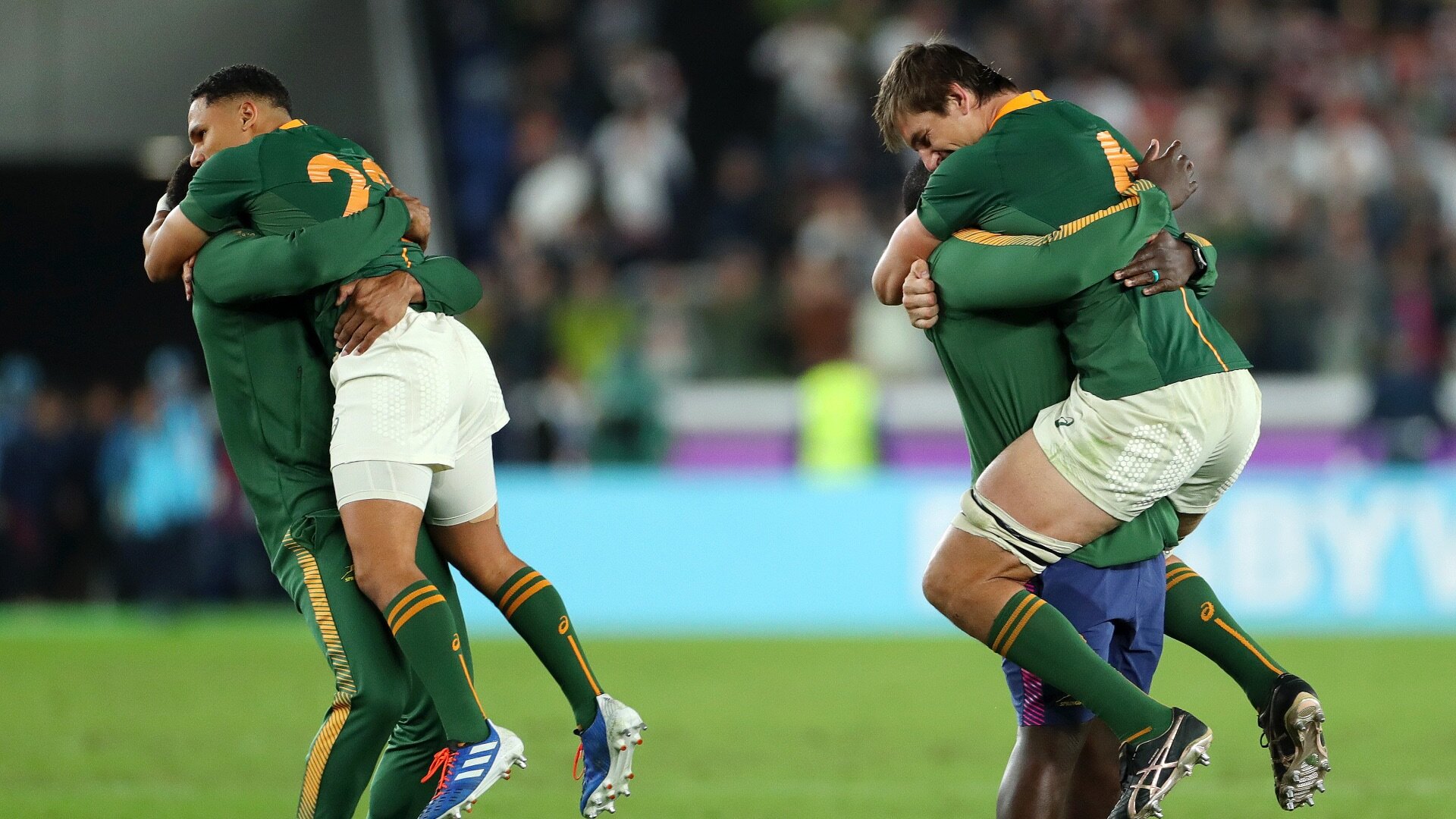Technicality means Springboks could remain world no.1 despite not actually playing any rugby

The Springboks could remain the world’s number one team – as per World Rugby ranking system – despite not playing any actual Test matches.
The Boks haven’t played a game since lifting the Webb Ellis trophy in Japan over a year ago, and chose not to part take in this year’s Rugby Championship.
Director of rugby Rassie Erasmus, head coach when the Springboks won the World Cup, said that his players would need more game time to be ready for the rigours of arguably the world’s toughest international rugby competition. “We worked out that the players needed a minimum of 400 minutes of game time before they could be ready for a Test match,” said Erasmus.
It was a move that was welcomed by the majority South African pundits, past players and fans alike at the time, although the Pumas win over the weekend has certainly thrown doubt on the credibility of the claim.
The Pumas played just two warm-up matches against a Rugby Australia XV, which included non-matchday Wallabies like Pete Samu, Joe Powell and James Ramm. They won both but the two-game series could hardly have been described as ideal preparation for the All Blacks.
When it comes to World Rankings, it looks like the Springboks will be sitting pretty, whether they play or not. Currently ranked No.1 with 94.2 points, nearly 6 points clear of England on 88.42, the Boks will retain their No.1 ranking despite not playing a game in the 2020 calendar year.
According to the World Rugby website, where they explain the ranking, the organisation suggest a side will maintain their current position, whether they are active or not:
Q. Will some countries tend to be higher rated at certain times of the year, such as following the Six Nations Championship?
ADVERTISEMENTNo. As all matches are worth a total of 0 points (as whatever one side gains, the other loses) there is no particular advantage to playing more matches. Under the system, a country has a certain rating, which stays the same until they play again. Although matches often result in points exchanges, relatively ‘predictable’ results lead to very minor changes, and may result in no change to either side’s rating at all.
Q. What happens if a country does not play for a number of years?
Their rating may be deemed to be ‘dormant’, in which case they will be removed from current ranking lists. However, when they are active again they will pick up their rating from where they left off.
RugbyPass contacted World Rugby to confirm what the rules were around dormant teams. A spokesperson for the global organisation said: “There is no impact on any union who cannot play a match in 2020 owing to Covid.”
The Springboks could fall down the ranking if another side exceeds their points total however.
Whether World Rugby deem the Springboks dormant or not may not even come into play, at least not as long as Covid is an issue. It’s good news for Jacques Nienaber, who hasn’t lost a single match since taking over as head coach and has maintained South Africa’s No.1 with apparent ease for over 12 months.

































